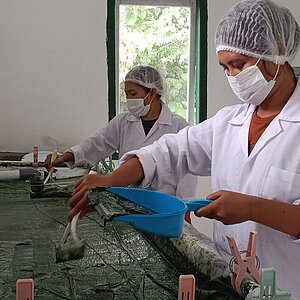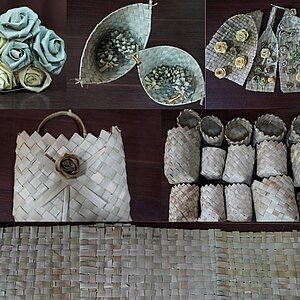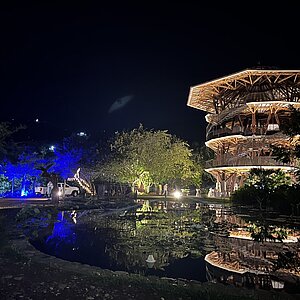Traditional knowledge and conservation inspire local marine protection in the Coral Triangle
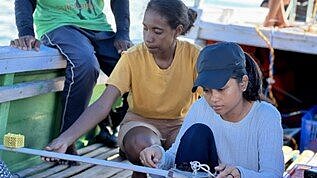
Participatory seagrass research in Timor-Leste leads to the establishment of a community-managed marine area governed by traditional systems.
Seagrass meadows are one of the most widespread marine ecosystems on the planet. They protect coastlines from storms, are important nursery and feeding grounds for fish, and are estimated to capture carbon up to 35 times faster than tropical rainforests. Seagrasses also underpin fisheries that support hundreds of millions of people around the world. Yet these extraordinary habitats are often overlooked in marine policy.
Seagrass beds are of particular economic, ecological and social value in the Coral Triangle, the most diverse and biologically complex marine ecosystem on the planet. At the heart of the Triangle sits, Timor-Leste, one of Asia’s newest countries. Timor-Leste’s seagrass meadows are important economic assets and also provide food and critical habitat for threatened species such as green turtle and dugong.
The Seagrass Ecosystem Services (SES) project in Timor-Leste funded by the International Climate Initiative (IKI). It is part of a broader regional initiative to address knowledge gaps and integrate seagrass into marine management frameworks, implemented by the CMS Office in Abu Dhabi under the Dugong Memorandum of Understanding (MOU) since 2019. It applies to six countries in the Asia region, with Blue Ventures Timor-Leste as the local partner in Timor-Leste.
Recognising the limited data available on seagrass in Timor-Leste, the project worked with the Hera community as stewards of a seascape dominated by this habitat. The community is heavily dependent on small-scale fisheries that, like many around the world, face significant threats to ecosystem health. The project assessed the health of local seagrass ecosystems and evaluated the ecosystem services they provide.
Combining a community-based approach with new seagrass research methodologies, the project also harnessed enthusiasm for action by incorporating participatory data and feedback sessions, highlighting the value of integrating traditional knowledge with modern conservation practice.

The project has recently reached a major milestone with an agreement to develop a new locally managed marine area (LMMA) to protect 1,100 hectares of critical fisheries habitat, including seagrass meadows, coral reefs, and mangroves. As part of an integrated management plan, the community has decided on which fishing methods and other activities can and cannot take place within the LMMA’s boundaries.

The SES Project’s findings were crucial in designing the LMMA, ensuring that decisions were evidence-based and met the current and future needs of the community.
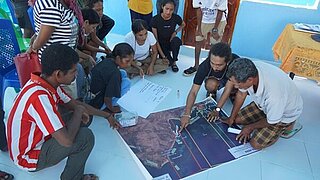
The Hera community voted to manage the LMMA using Tara Bandu, a traditional governance system long used by Timorese communities to manage natural resources. This approach has cultivated a strong sense of stewardship within the community, aligning conservation efforts with Timorese values and sustainable practices.
In addition to a 274-hectare no-take zone where no fishing is allowed, the LMMA will include a 1,100-hectare sustainable fishing area, that balances the conservation and community needs. The establishment of a women’s fisheries monitoring group will track the impact of the five-year management plan – promoting women's active participation in decision-making processes, which have historically been dominated by men in Timor-Leste.
As Timor-Leste continues to develop its national marine management policies, the Hera LMMA stands as testament to the potential of locally-led initiatives to contribute to broader national conservation goals, while preserving cultural heritage and building resilience in coastal communities. The Hera LMMA is a powerful example of how community-centred conservation can be effectively and sustainably scaled up in Timor-Leste.
The link has been copied to the clipboard
Contact
IKI Office
Zukunft – Umwelt – Gesellschaft (ZUG) gGmbH
Stresemannstraße 69-71
10963 Berlin
Further information
For more information about the Seagrass Ecosystem Services Project, visit the website of the Dugong & Seagrass Hub.








